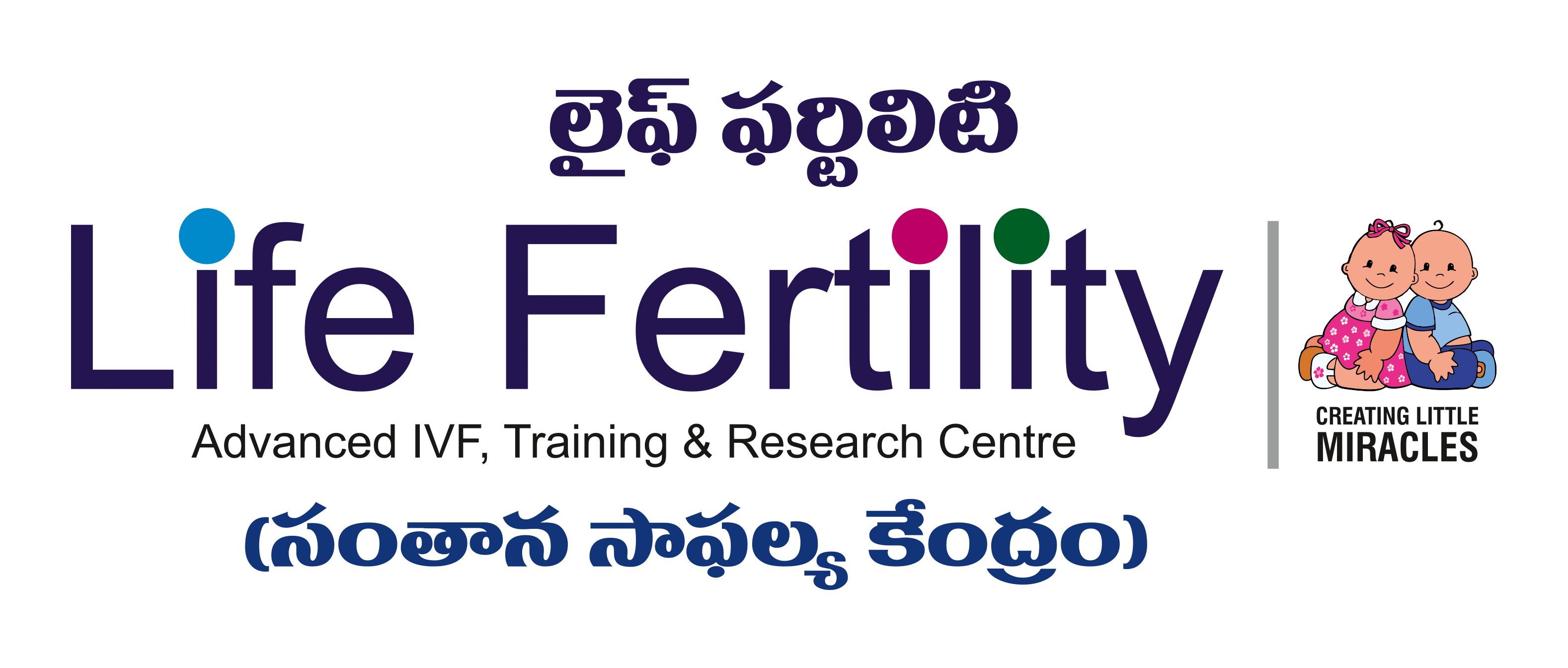
In-Vitro-Fertilization (IVF) is a type of Assisted Reproductive Technology (ART) that helps you get pregnant if you are not able to do so naturally. It helps with fertilization, implantation, and embryo development. The InVitro Fertilization process is one of the popular Assisted Reproductive Technologies that gives hope for a baby to many childless couples today. The procedure works by artificially fertilizing your retrieved eggs and sperm outside your body, which is in a laboratory under controlled environmental conditions. The embryo thus formed is then transferred directly into your uterus. Pregnancy happens if the embryo attaches to your uterus lining.
Your doctor will explain the best time to start the treatment after the initial consultation, examination, and blood tests. Your clinician may start your treatment on the 2nd or 3rd day of your period.
IVF is a very safe and effective treatment option and with the latest advancement in medical technology, IVF results have improved significantly.
IVF is not at all painful because the injections used for IVF are purified and injected in subcutaneous form. The egg collection process is done under light sedation which is also not painful. At the time of embryo transfer, anesthesia is not given but it is a 2 to 5 minutes process that hardly causes any pain. Every patient is different; therefore the process will differ from patient to patient. However, when it comes to IVF injections, they are thin and easy and do not require an intervention. They can also be administered under anesthesia if required.
Success rates strongly depend on the age of the patient, their condition, medical history, and the treatment used. LIFE FERTILITY IVF center has a record success rate that ranges between 80 – 90%.
However by utilizing advanced technology and standardizing the procedures and personalizing protocols, we are constantly working towards improving the IVF success rates
PCOS (Polycystic Ovarian Syndrome) refers to a condition caused by hormonal imbalances. Women suffering from PCOS produce higher than-normal amounts of male hormones. This affects ovulation and can result in irregular periods. In some cases, women suffering from PCOS may have irregular periods. This, in turn, can make it harder for these women to conceive. In fact, PCOS is one of the most common causes of female infertility.
Both male and female factors contribute to infertility. Some studies suggest that male and female factors contribute equally. In many cases, it may not be possible to definitely explain the reasons for infertility. It is essential that both the male and female partners be evaluated during an infertility workup.
For healthy couples in their 20s or early 30s, the chance that a woman will become pregnant is about 25 to 30 percent in any single menstrual cycle. This percentage starts to decline in a woman’s early 30s. It declines more rapidly after age 37. By age 40, a woman’s chance of getting pregnant drops to less than 10 percent per menstrual cycle. A man’s fertility also declines with age, but not as predictably.
The latest advancement in medical technology has raised the odds of curing infertility to a significant degree. Though there are some cases of infertility that can’t be cured, in general, infertility in both males and females can be cured effectively. A growing number of infertility treatments are coming through that are helping more and more people become fertile and start a family.
IVF is not a single procedure instead it takes a series of steps. On average, the entire procedure of IVF starting from consultation to the last step which involves embryo transfer takes about 6 to 8 weeks. It starts with the administration of fertility drugs for a couple of days to induce ovulation along with continuous monitoring by ultrasound or hormonal profiling. But this might vary from patient to patient depending on certain circumstances. In week 1, consultation begins followed by pretreatment preparations in weeks 2 to 4. Medications and monitoring happen in week 5. The triggering, egg retrieval, and fertilization occur in week 7. After this pregnancy is tested.
IVF is done when there are issues related to conceiving a child due to blocked fallopian tubes, endometriosis, or any other unknown reason for infertility in both the mother and the father. The procedure depends on the overall review and history of the couple.
No, we do not perform deliveries.
Intrauterine Insemination is a fertility treatment in which sperm are placed directly into the uterus of a woman to increase the chance of fertilization. It helps to bring healthy sperm closer to your egg. The semen sample is specially prepared through a washing procedure and it is transferred into your uterus via a thin catheter.
It requires approximately 3-6 weeks depending upon the review of the couple and the type of therapy they are having.
The first visit with a fertility specialist usually involves a detailed medical history and a physical exam. You will be asked questions about your menstrual period, abnormal vaginal bleeding or discharge, pelvic pain, and disorders that can affect reproduction, such as thyroid disease. You and your partner will be asked about health concerns, including:
Medications (both prescription and over-the-counter) and herbal remedies
-
- Illnesses, including STIs and past surgery
- Birth defects in your family
- Past pregnancies and their outcomes
- Use of tobacco, alcohol, and illegal drugs
- Use of marijuana (recreational or medical)
You and your partner also will be asked questions about your sexual history, including:
- Methods of birth control
- How long you have been trying to get pregnant
- How often you have sex and whether you have difficulties
- If you use lubricants during sex
- Past sexual relationships
Fertility drugs might cause a mild reaction in some patients, and may involve hot flushes, feeling down, irritability and restlessness. These symptoms disappear in a short time. In some patients, ovarian hyper-stimulation syndrome (OHSS) is observed as an overreaction to fertility drugs. It could cause symptoms like swollen stomach, stomach pains, and nausea. Patients must contact their infertility clinician immediately in such cases. There is no pain during IVF apart from the injections which women receive. However, in some patients, ovarian torsion could be another observed side effect. Mild pelvic discomfort arises because the size of the ovaries increases during the stimulation period. The other side effects of IVF during pregnancy include ectopic pregnancy and multiple births. When an embryo develops in the fallopian tube rather than in the womb, the pregnancy is said to be an ectopic pregnancy. Ectopic pregnancy can cause vaginal bleeding, low pregnancy hormone levels, and miscarriage. Hormone tests and scans are used to detect ectopic pregnancies and patients must call the doctor immediately when they observe vaginal bleeding or stomach pain. Multiple births are another risk associated with fertility treatment. Your clinician would discuss this risk with you before the embryo transfer procedure.
No. There is no study which has proven so. Prolonged infertility, perse, has been associated with endometriosis.
What People Says about Life Fertility Clinic
Google Reviews
What People Says about Life Fertility Clinic
Testimonials

Our Contacts
________
#16-1-25, RS Edifice, Coastal Battery Rd, Collector Office, Jn, Visakhapatnam, Andhra Pradesh 530002
